Ghost towns rattled by sporadic gunfire: Tensions run high in fragile Lebanese-Israeli ceasefire
On the ground: Three days after Israel and Hezbollah agreed a ceasefire, Bel Trew and Rana Najjar visit the decimated towns on the southern Lebanese border where locals are not yet allowed to return

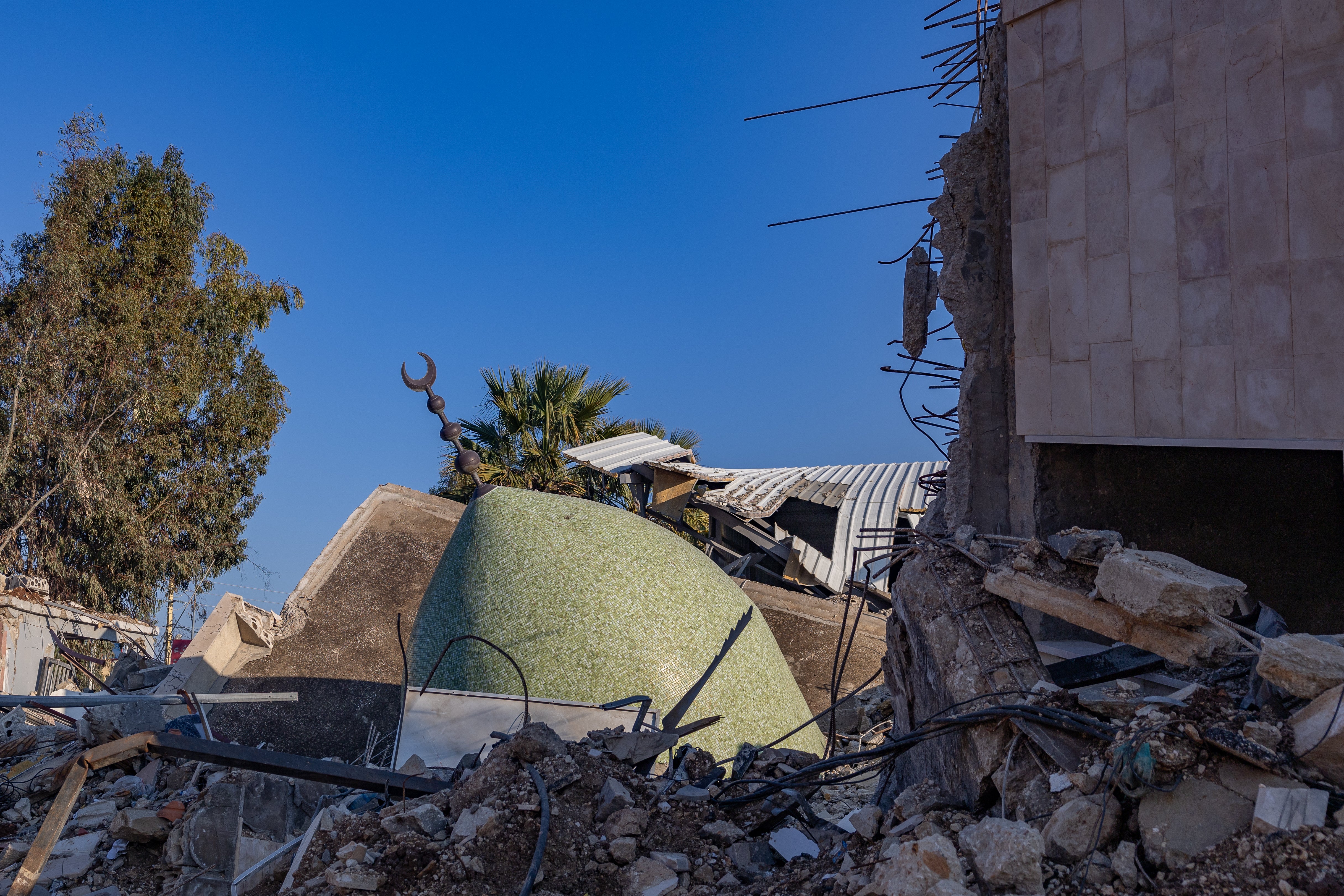
A stutter of gunfire rips through the silence that envelops the destroyed centre of Bint Jbeil, a southern Lebanese town just three kilometres from the border with Israel.
“Did you hear that?” a member of Hezbollah asks, dwarfed by the smashed remains of a central marketplace. “This is what we call violating the ceasefire.”
This Shia town is on a list of more than 60 Lebanese settlements in the area that the Israeli military has forbidden residents from entering or returning to—amid a fragile and increasingly tense ceasefire.
It was also the battlefield of some of the fiercest fighting during the 13-month war between the Israeli military and the Hezbollah militant group that decimated swathes of Lebanon and killed 4,000 people, including hundreds of women and children.
On Saturday, first responders were still pulling decomposed bodies of Hezbollah fighters from the collapsed remains of buildings. A widow of a fighter and her family gathered by a smashed mosque, its severed minaret lying on its side, to collect their dead.
Behind them, bulldozers clawed at multi-storey piles of ashen concrete and snarled rebar. Members of the Lebanese army—deployed to enforce the truce—manned checkpoints and handed out leaflets warning civilians about unexploded bombs, shells and grenades.
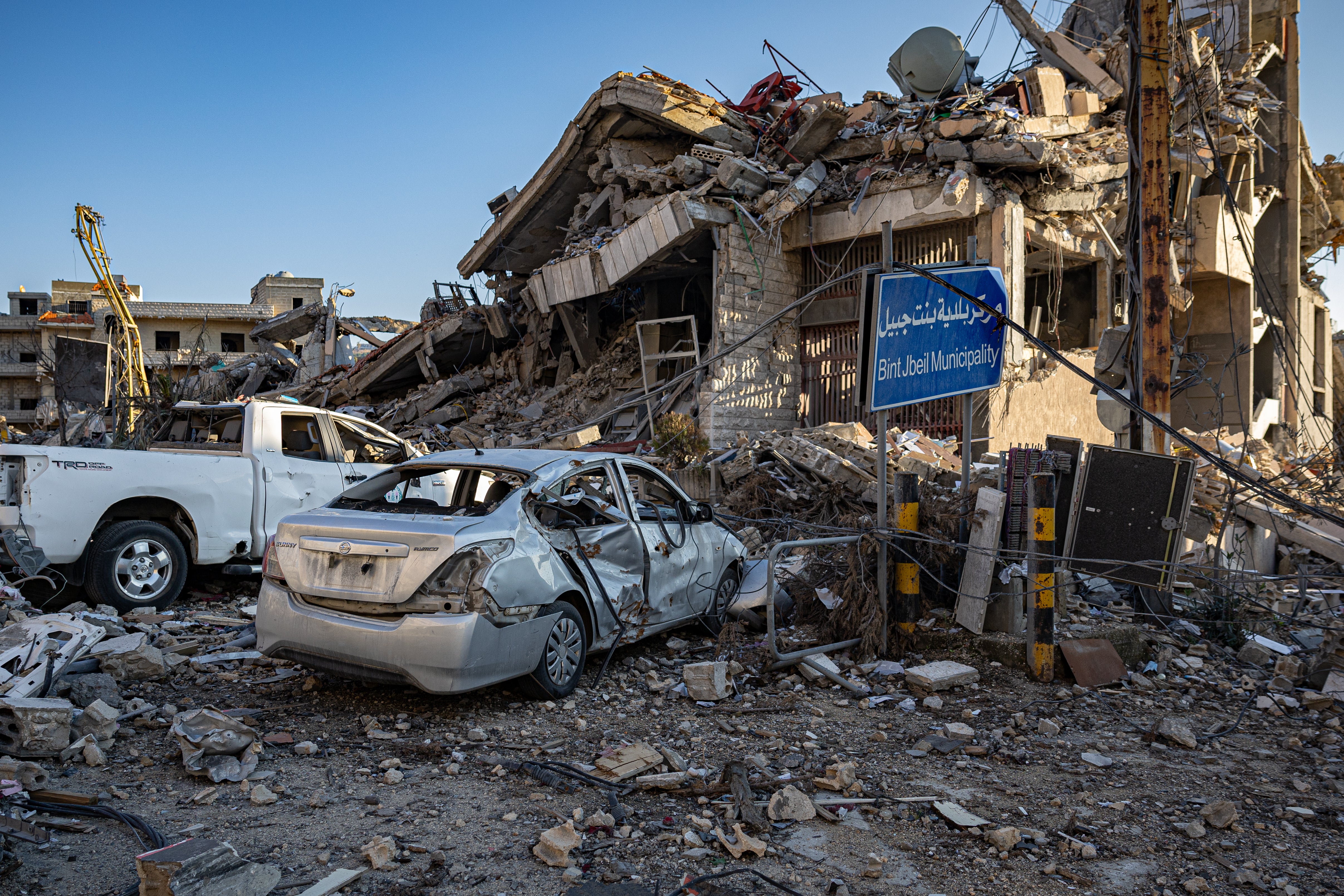
Both Hezbollah and Israel have traded accusations of violating the fragile truce brokered by the United States last week. Under its terms, Hezbollah and Israeli forces are supposed to withdraw from southern Lebanon within the first 60 days, allowing the Lebanese military to take over.
There are growing concerns that soaring tensions on both sides of the border could cause the hard-fought truce to collapse, dragging the region back into all-out war.
In Bint Jbeil, large swathes of which have been reduced to rubble, the atmosphere is tense. We were warned not to walk further down one street due to the potential for incoming Israeli fire.
On Thursday and Friday, local media and residents reported that the Israeli army fired on and injured civilians here.The Independent could not immediately verify these reports.
The violence continued on Saturday. An Israeli strike on a car in Majdal Zun, in the southwest of the country, injured three people, including a seven-year-old child, according to the health ministry. Later, the ministry reported that another strike wounded one person in Al Bissariya, a town just east of Saida.
Lebanon’s state-run national news agency also reported two deaths in a drone strike on Rab Thalateen, located just two kilometres from the border.
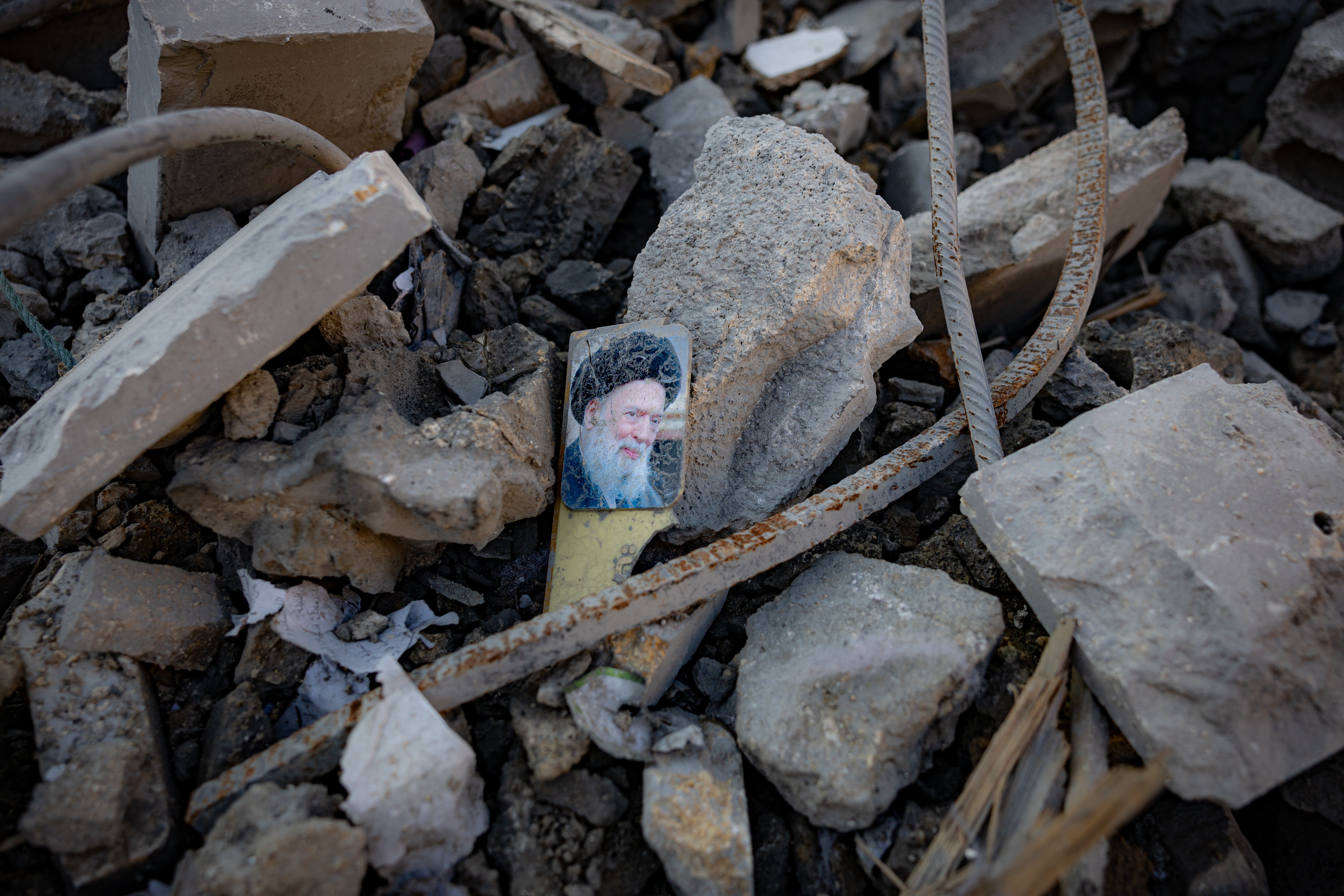
The Israeli military has denied breaking the ceasefire agreement and has instead repeatedly accused Hezbollah of violating the terms.
On Saturday, they defended the drone and air raids, saying they had observed “armed operatives loading a vehicle with RPGs, boxes of ammunition, and other military equipment” and noted Hezbollah activity in its facilities involving “rocket launches” and militants “approaching Hezbollah structures in southern Lebanon.”
“The IDF is deployed in the southern Lebanon area, operating against any threat to the State of Israel and enforcing any violation of the ceasefire agreement,” they added.
The Independent reached out to Hezbollah for comment but has yet to receive a response.
The head of Hezbollah, Naim Qassem, however, pledged on Friday to coordinate closely with the Lebanese army to implement a ceasefire deal with Israel, which he said his group had agreed to “with heads held high.”
In his first public address since the ceasefire, Qassem said there will be “high-level coordination between the Resistance (Hezbollah) and the Lebanese army to implement the commitments of the deal”.
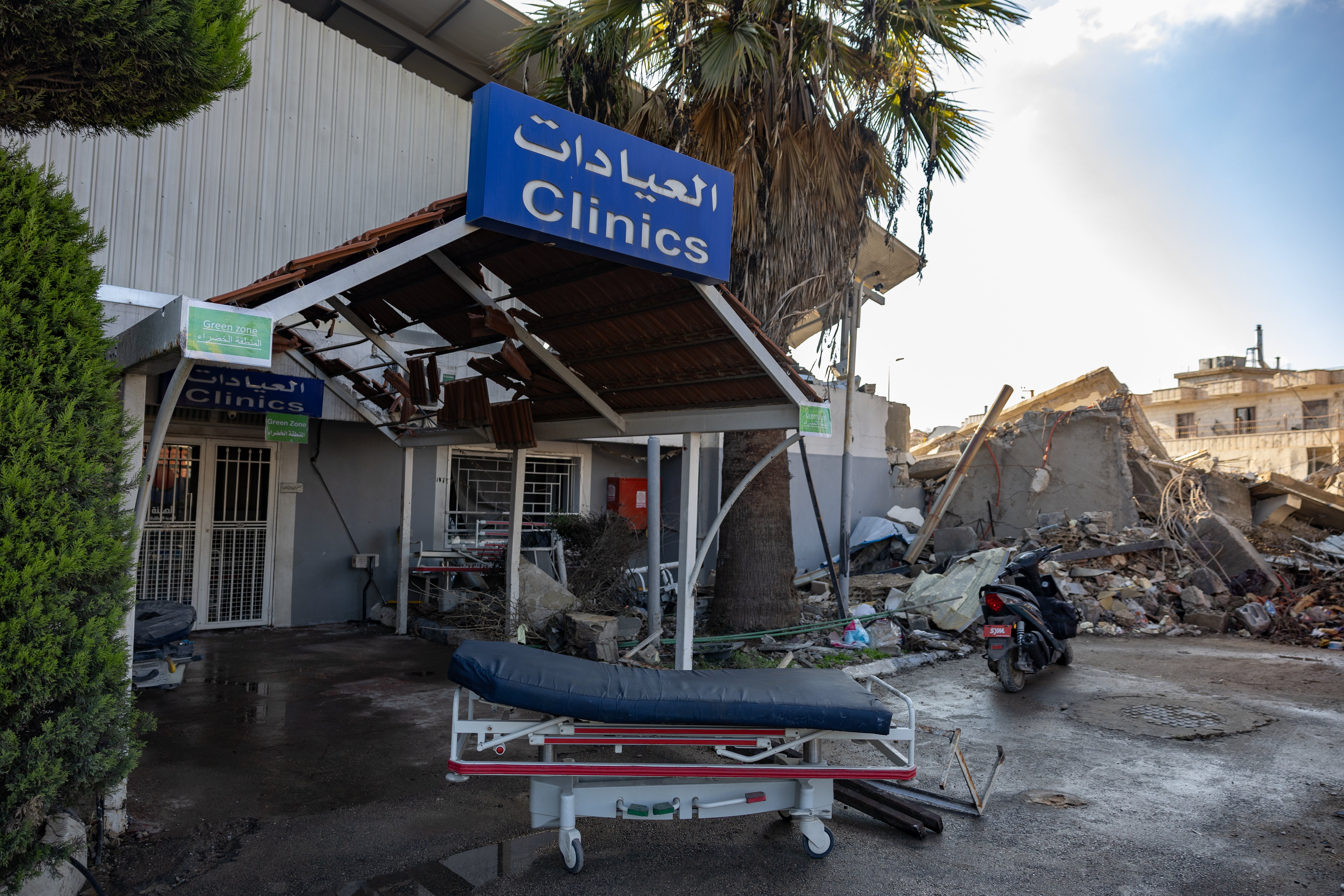
But recent developments have still raised concerns that the ceasefire will not hold.
In Bint Jbeil, Salim Mourad, head of the municipality in the nearby village of Aitaroun, said he was worried that the truce was being so undermined it “lacked credibility.”
Israel “took measures around the perimeter of the frontline villages—including Aitaroun—by resuming fire and making some breaches and advances in these areas, which has undermined the fragility of the ceasefire,” he said, standing next to a partially bombed hospital and a shot-up ambulance.
“We demand that the entire international community, especially those concerned with implementing United Nations resolutions, fully enforce these resolutions.
“People only talk about the obligations of the Lebanese and what they are supposed to do. We, too, demand the implementation of... measures requiring Israel to cease its aggressions.”
The talk in the town, meanwhile, is of another “big war” on the horizon.
One man, a local who asked not to be identified for security reasons, said the conflict was not done. “Even if it is stopped for now, Israel is still on our border.”
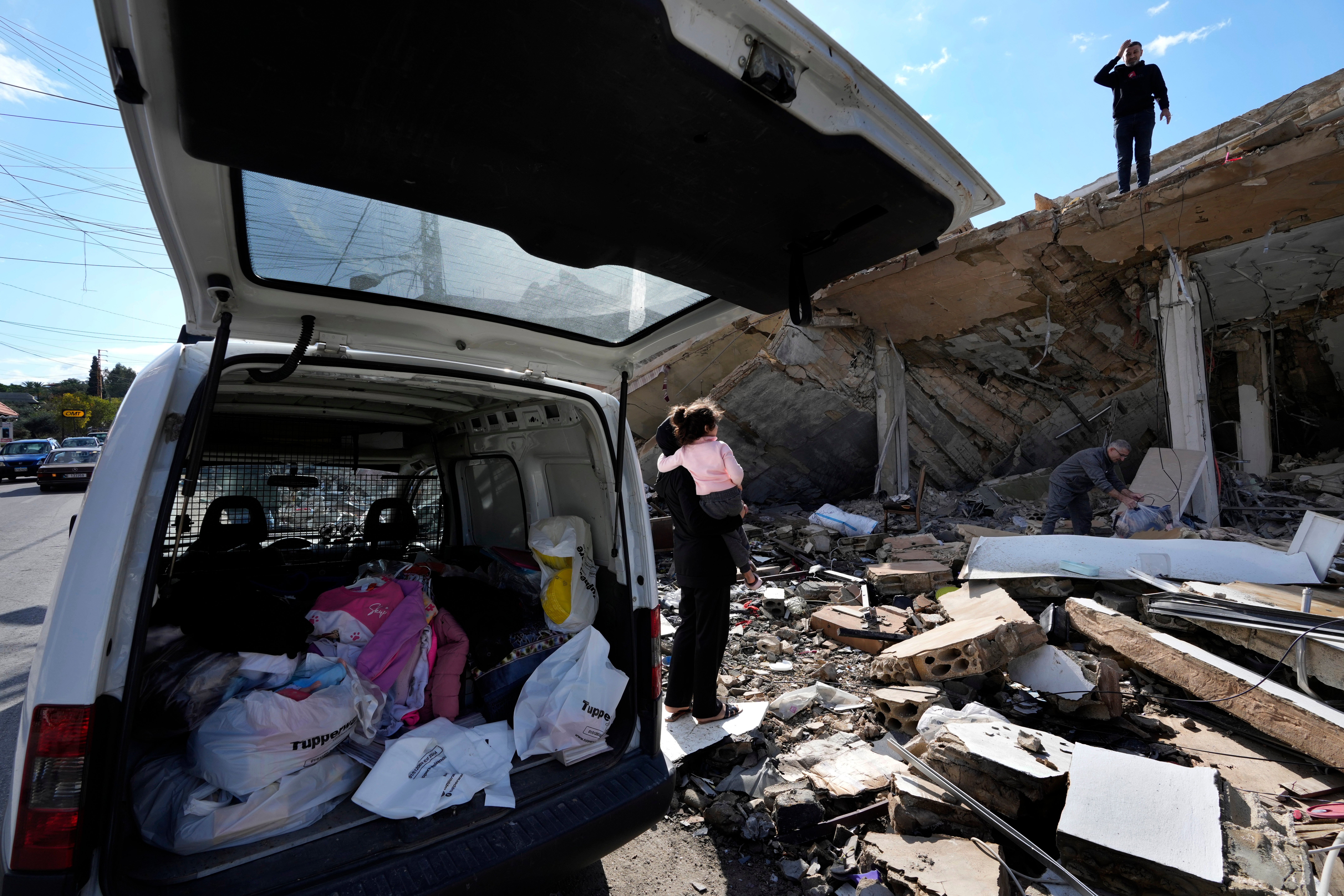
Jacqueline, a widow of a Hezbollah fighter who was collecting her husband’s body, was equally defiant. The mother-of-six expressed pride in her husband and her willingness to “lose [her] whole family” for her country.
“We do not trust them,” said the 49-year-old, speaking about Israel and its commitment to the ceasefire terms.
“If they think they can end Hezbollah, they must know it will never end. If they want to destroy Hezbollah, they will have to destroy all of Lebanon.
“Even if they kill every single last one of us, we will defend the country with our last breath.”
Join our commenting forum
Join thought-provoking conversations, follow other Independent readers and see their replies
Comments
Bookmark popover
Removed from bookmarks